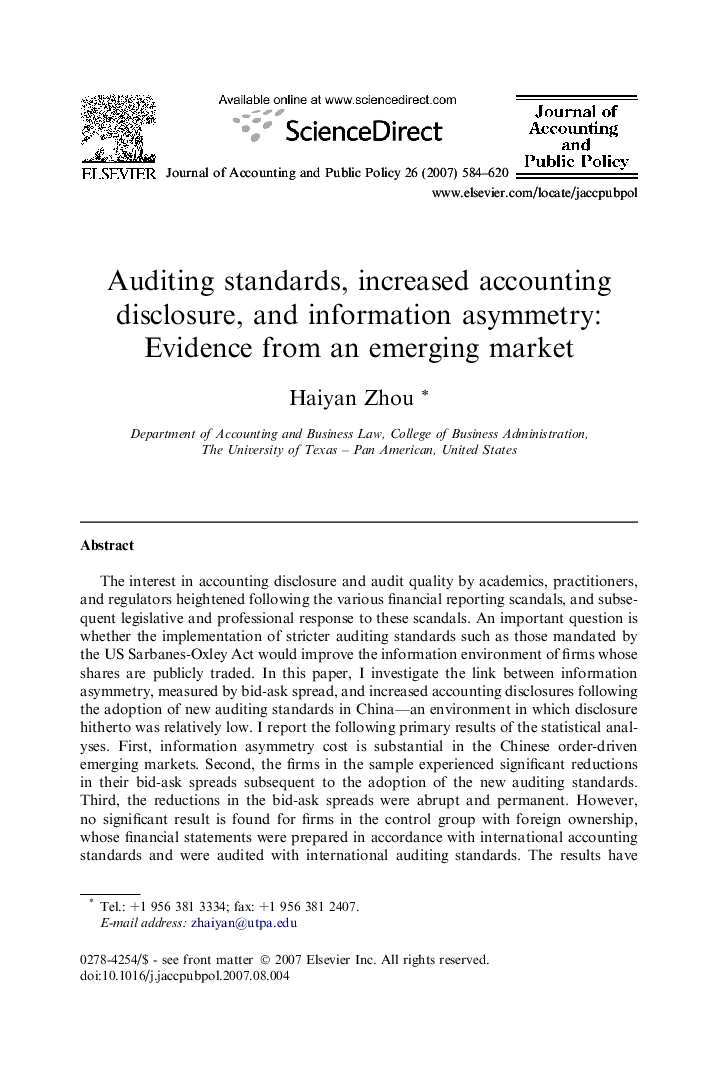| Article ID | Journal | Published Year | Pages | File Type |
|---|---|---|---|---|
| 1006188 | Journal of Accounting and Public Policy | 2007 | 37 Pages |
The interest in accounting disclosure and audit quality by academics, practitioners, and regulators heightened following the various financial reporting scandals, and subsequent legislative and professional response to these scandals. An important question is whether the implementation of stricter auditing standards such as those mandated by the US Sarbanes-Oxley Act would improve the information environment of firms whose shares are publicly traded. In this paper, I investigate the link between information asymmetry, measured by bid-ask spread, and increased accounting disclosures following the adoption of new auditing standards in China—an environment in which disclosure hitherto was relatively low. I report the following primary results of the statistical analyses. First, information asymmetry cost is substantial in the Chinese order-driven emerging markets. Second, the firms in the sample experienced significant reductions in their bid-ask spreads subsequent to the adoption of the new auditing standards. Third, the reductions in the bid-ask spreads were abrupt and permanent. However, no significant result is found for firms in the control group with foreign ownership, whose financial statements were prepared in accordance with international accounting standards and were audited with international auditing standards. The results have implications for policy makers and regulators in general, and those in emerging markets in particular.
